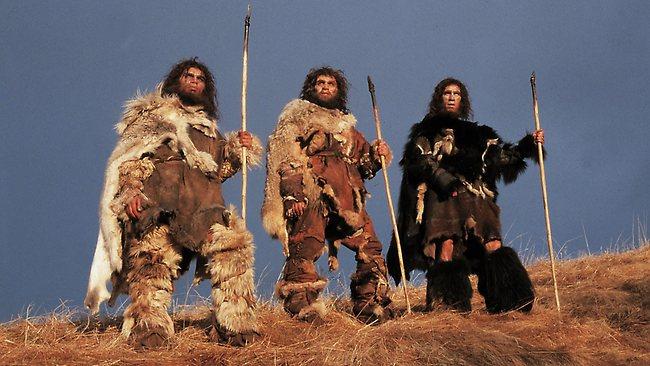‘Human beings are social animals. Biological evolution equipped men and women for a communal existence, hunting and foraging in tribes of between twenty and forty people. We could never have survived this ecological niche by ourselves. We don’t have the strength, speed or agility of other animals…. But we do have language. We can communicate with others and we are bright enough to collaborate for purposes of hunting, collecting food, defence and building shelters. A tribal group would work as a team, assigning to each member a role according to their character and skills.’
This an extract from a book called ‘Sick and Tired – Healing The Illnesses Doctors Cannot Cure’ by Nick Read. It’s a fascinating investigation of ‘functional illnesses’ which doctors are unable to pin down with a cure, such as IBS, chronic fatigue, depression, fibromyalgia, eating disorders and so on. Dr Read explores the idea that, despite the fact that as a society we’ve ‘never had it so good’, we’re sicker and unhappier than we’ve ever been, and the stressful pace of modern life and disconnection from our simple humanity is to blame.
His description of how we lived back in our caveman days struck a very loud chord with me. Twenty to forty people, living a nomadic existence and working as a team within roles according to their character and skills. Remind you of anything?
No wonder we like touring – we’re basically channelling our inner cavemen! I’m making light of it, but life on the road really does offer a sense of community that’s increasingly rare in modern life. We each have our roles to fulfil, which offers the opportunity for creative expression, problem-solving, and collaboration with others, and we have to do it within a timeframe, which means tangible satisfaction rather than never-ending procrastination. And our work may involve mind-boggling amounts of technology, but it also involves a lot of physical activity – pushing, pulling, climbing, lifting, standing up and walking around for most of the day – all of which means we use our bodies as evolution intended. Being away from home also provides a chance for genuine rest and down-time on days off, rather than racing around. I certainly find being on tour more relaxing than juggling different tasks back home, and suddenly I understand why that is, despite long hours and the potentially pressured environment.
This is not to say that roadies never suffer any kind of functional illness; of course we do. There are ample temptations and opportunities to break yourself on tour as well as all this good stuff. But I think it’s interesting that studies increasingly suggest that it’s living out of sync with our caveman roots which has made us so sickly as a society. The rate of lifestyle change has dramatically accelerated since the industrial revolution, and the incidence of the illnesses which have no obvious cure – despite immense, marvellous leaps in treating pathology – have accelerated alongside it.
When you think about it, it’s the least surprising thing. Take a being who has evolved for a nomadic, active, communal existence roaming in nature; who thrives on practical problem-solving, eating food hunted and gathered from the land; who derives satisfaction from doing the skills they’re suited for and not comparing themselves with others; whose body responds to threat by fighting or running for their life, and who rises with the sun and sleeps for as long as they need. Now, airdrop them into a situation where they spend most of their time static, unable to roam freely because of overcrowding; where their practical abilities and simple satisfactions have been outsourced to machines; where they eat processed chemical foodstuffs with precious little connection to the land; where they are encouraged to constantly compare themselves with others and measure their self-worth by their appearances and possessions; where they are vulnerable to artificial alerts and stimulation 24 hours a day and where, because of all of this, they’re in a constant state of stress from which they cannot run. Would we really be shocked if this being got sick? Of COURSE not!
We may not have been airdropped, but the few thousand years in which we have made these changes, in evolutionary terms, is the blink of an eye. Our physiology and psychology hasn’t been able to keep up, and we’re now very bewildered space-age cavemen.
So it feels good to have a taste of that more natural way of life, as we roam the world with our tour tribe. Touring doesn’t make modern life go away – heck, touring as we know it couldn’t have happened 100 years ago. But we do have some precious, crucial elements in there which I believe are a large part of the pleasure – even the romance – of touring. We’re lucky.
Because we humans are the food that got clever.
Clever – but not wise.
